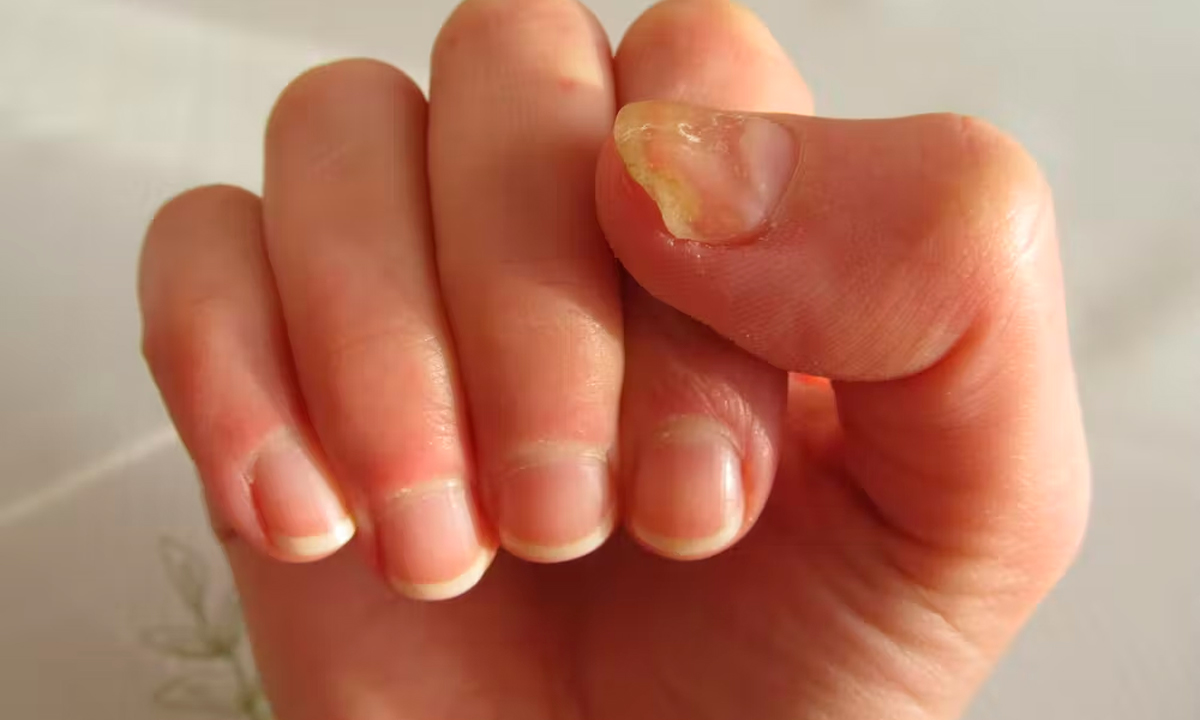Nail fungus also known as onychomycosis is a common infection of the nail. It starts with a white or yellow-brown spot under the tip of your fingernail or toenail. As the infection progresses, the nail may discolor, thicken and crumble at the edge. Tinea pedis is a fungal infection between your toes and the skin of your feet.
Symptoms
- Thickened nails
- Discolored nails
- Brittle, crumbly, or ragged nails
- Smelly nails
Risk factors that can increase your risk of developing nail fungus
- Older age
- Excess of sweating inside your shoes
- Any kind of nail injury
- Having skin issues like psoriasis that affects nails
- Having diabetes or a weak immune system
Lifestyle habits that can prevent nail fungus
- Keep your nails clean and dry. Wash your hands and feet regularly. Every time you touch your infected nail, wash your hands properly. Dry them well, apply an antifungal foot powder regularly on your infected nail and keep them moisturized. Consider applying a nail hardener, which might help strengthen nails and cuticles.
- Long nails are an easy place for fungus to grow. Always keep your nails trimmed. Cut nails straight across, smooth the edges with a file and file down thickened areas. Disinfect your nail clippers after every use.
- Try to get absorbent socks so as to absorb all the sweat that comes inside your shoes. Or else change your socks every few hours as and when required.
- Choose breathable shoes, these shoes will avoid the accumulation of sweat inside your shoes.
- Disinfect your old shoes or apply antifungal powders or else you can discard also.
- Wear footwear in pool areas and locker rooms.
- Every time you go for a manicure, make sure that the manicure tools are properly disinfected or sterilized. At home also, disinfect your home pedicure manicure tool after every use.
- If you have an athlete’s foot, apply antifungal cream or powder over it.
When to go to a doctor?
When your nail fungus gets painful, thickened or hardened, or discolored, do consult the doctor without delay. Also, pay extra attention and treat the condition if you have diabetes, bleeding around the nails, difficulty walking, or swelling of the nails.
Using steroid-containing OTC creams for these infections can make them chronic and difficult to treat. Don’t use them without consulting your physician. They can worsen the condition.
(Disclaimer: The content on this site is for informational purposes only, and should not be taken as professional medical advice. Always seek the guidance of your doctor or other health professionals for any questions you may have regarding your health or a medical condition.)

 Fungal infections are very common in monsoons. The wet, humid, and damp weather makes it perfect for their growth and multiplication. Using steroid-containing OTC creams for these infections can make the condition more chronic and difficult to treat. So, don’t use them without consulting your physician.
Fungal infections are very common in monsoons. The wet, humid, and damp weather makes it perfect for their growth and multiplication. Using steroid-containing OTC creams for these infections can make the condition more chronic and difficult to treat. So, don’t use them without consulting your physician.










.jpeg)

.jpeg)










.jpg)




.jpg)

